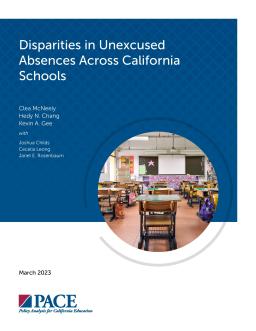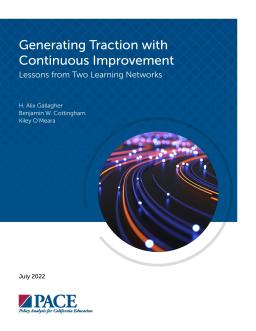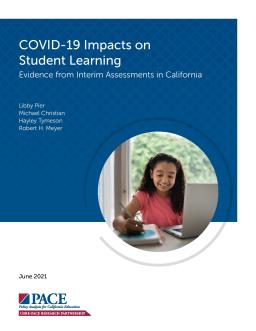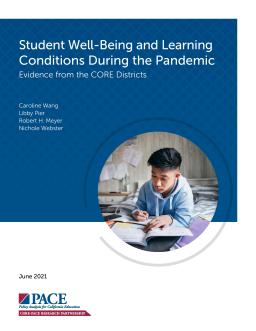Published
Summary
This report finds that improving school attendance is crucial, especially with the increase in chronic absence. Data on unexcused absences should be used to create a more preventive, problem-solving, and equitable response to poor attendance. Labeling absences as unexcused affects how students and families are treated and can lead to punitive measures that may not improve attendance. Overuse of the unexcused-absence label could undermine efforts to partner with students and families to improve attendance.
Lessons from Two Learning Networks
Published
Summary
This report examines how continuous improvement is applied to educational accountability in California. It analyzes the experiences of two organizations leading networks to increase postsecondary success, aiming to improve the consistency of initiatives using continuous improvement. Key takeaways for districts, county offices, and support providers are provided.
Evidence From Interim Assessments in California
Published
Summary
At the first anniversary of school closures due to COVID-19, nearly half of the K–12 students in the U.S. were attending schools that were either fully remote or offering hybrid instruction, with more than 70 percent of California students attending schools remotely. For this reason, continued efforts to unpack the effects of COVID-19 on student outcomes are especially important for California students, who may be experiencing larger-than-average effects of continued school closures relative to the nation overall.
Evidence from the CORE Districts
Published
Summary
The CORE Districts in California conducted a survey to measure K-12 students’ social-emotional well-being during the pandemic. Results indicate that students’ personal and interpersonal well-being rated lower than their learning environments. Interpersonal well-being was most correlated with academic achievement. Home/online learning environment improved, but Grades 5-12 students reported not liking school as much in winter 2020-21. Stakeholders should focus on meeting the pressing needs of each group of students.



